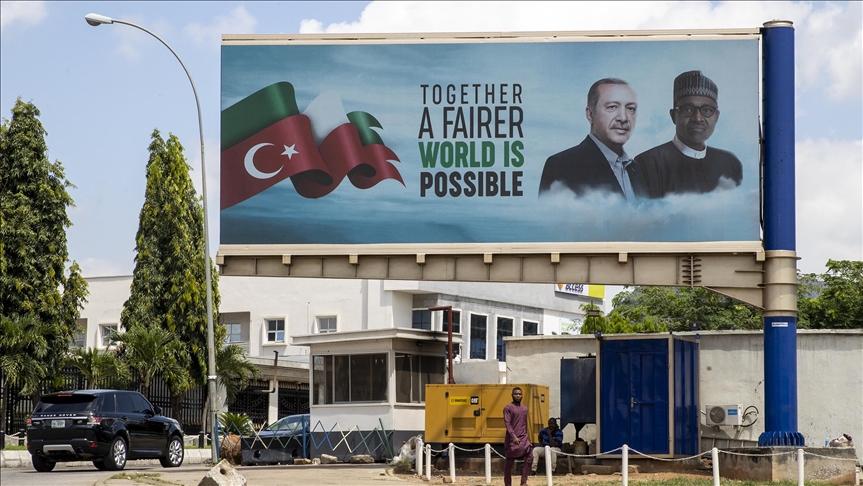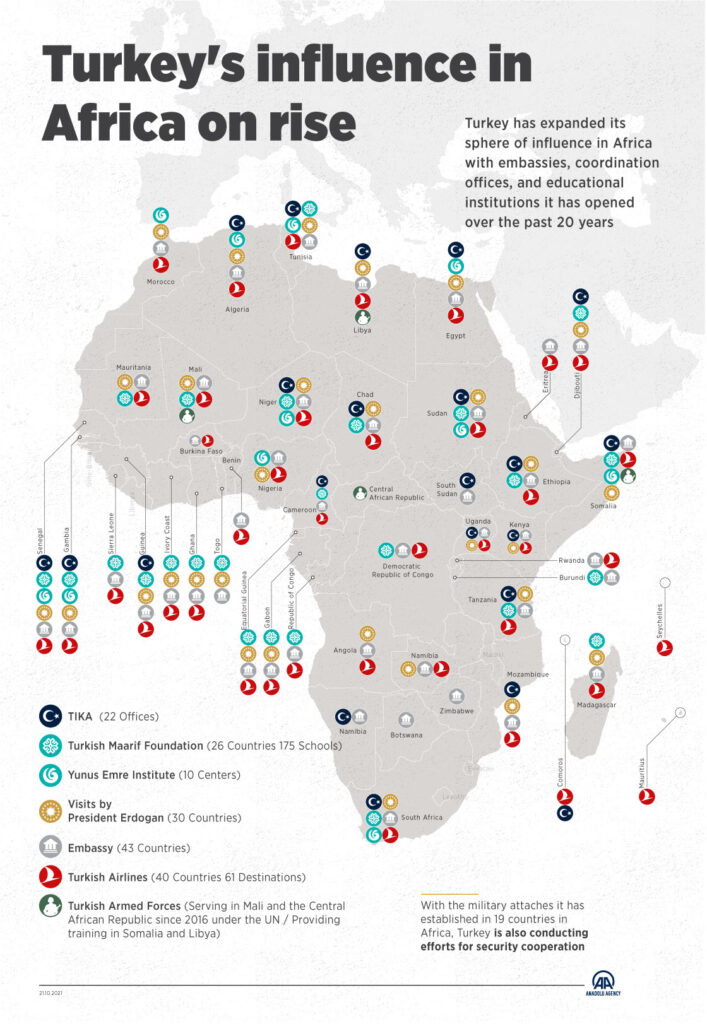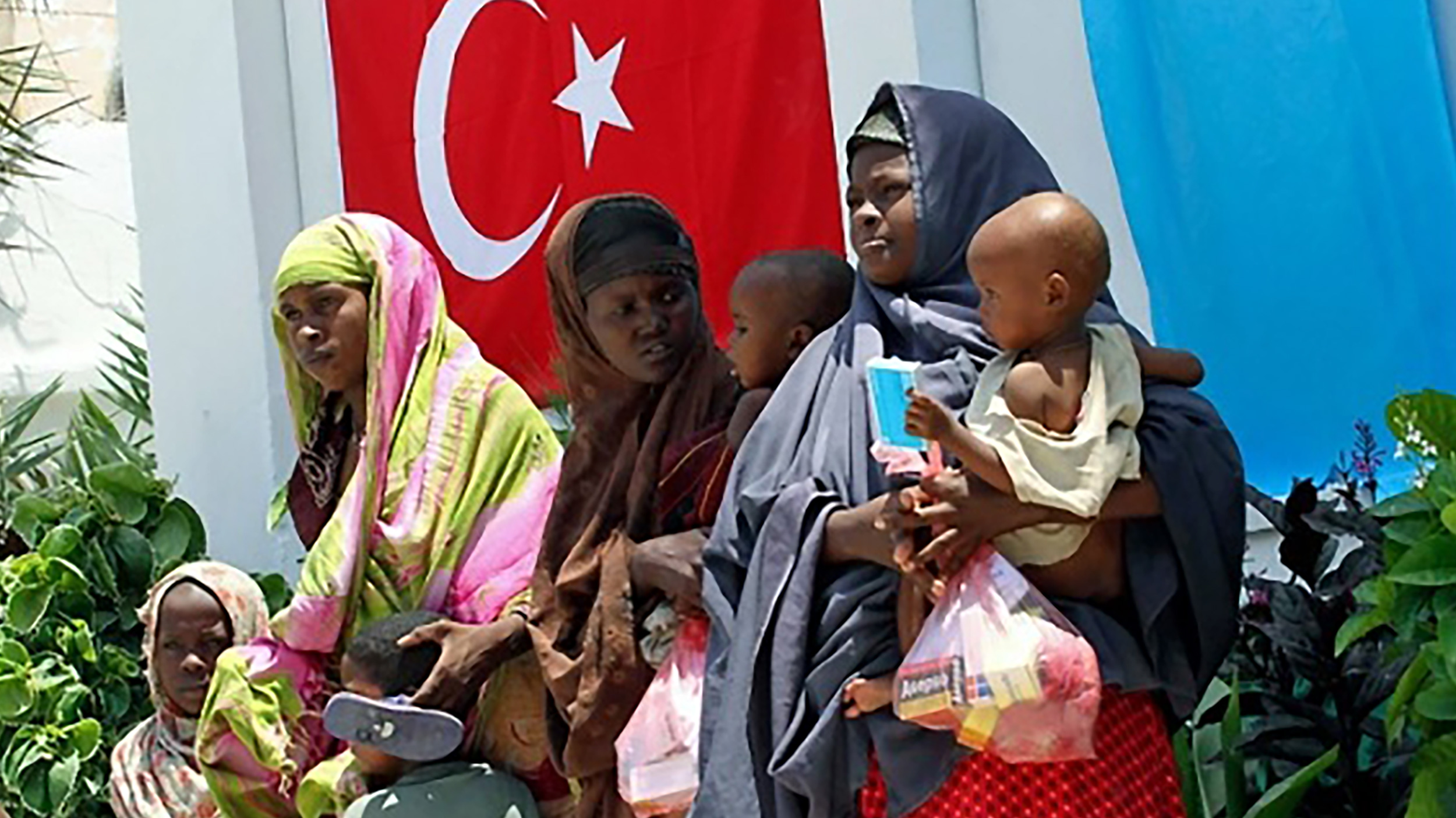By Katya Mavrelli,
As Africa is turning into a big investment hub, attracting investors from all over the world, it becomes more and more evident that its political significance is also growing. While new business opportunities emerge, political stability is still questioned, and insecurity prevails. In the midst of it all, Turkey turns into a key player that can determine the course of business in the region, bring possible stability and connect Africa with the wider Middle East. And as the continent grows and takes the form of something different, Erdoğan’s empire sets on a path to further assert itself.
Just 20 years ago, few world leaders would have imagined that Africa is turning into the powerhouse that it is right now. The geopolitical instability and the general atmosphere of political insecurity did not inspire many leaders to turn their attention to one of the richest continents in terms of markets, resources, and diplomacy. It looked like a continent that would be left alone, given that it did not have anything to contribute to the rest of the world. It did not seem to matter for the west either, since the attention of western leaders led by the U.S. was being placed on the Middle East. 9/11 changed American foreign policy significantly, making U.S. presidents feel more concerned about the domestic political developments in Iraq, Syria, and Iran, rather than the plethora of business opportunities that can be found in Africa instead.
However, the Trump administration – even more than the Obama one – decided to redefine its focus. Instead of zooming in on the decade-long instability of the Middle East, which did not seem to be able to solve its internal issues, eliminate extremism from the list of variables to pay attention to, and bring democracy to the forefront, it turned to Asia and the players that were emerging there. The post-Cold War geopolitical equilibrium, with the U.S. as its leader, was crumbling into pieces, and China was assertively trying to set its own place on the table. This suggested that the “golden era” of the Middle East was over and that the American hegemony would be over.

With this in mind, world leaders became interested in different areas around the globe. The West turned into a hub for authoritarianism and nationalist governments, Asia became a central political and economic powerhouse, and the Middle East was left on its own. And while everyone was trying to find their feet in this decade-long game, Turkey was also called to redefine its foreign policy and shift its focus elsewhere.
After the dreams of joining the EU sunk and securing a spot among other European states became a faraway reality, Erdoğan turned to Africa. The starting point was when he visited Somalia for the first time in 2011, symbolizing a turning point and opening up of the region, as this was the first visit by a non-African leader in approximately two decades. Ever since trade has been expanding more and more, diplomatic ties have been deepened and economic ties are covering more fields as time goes by.
Erdoğan is also covering the hard power side of Turkish foreign policy by sending aid – military and civilian – to Ethiopia and other war-torn areas and troops to Libya to fight against Khalifa Haftar. It has also formed military pacts with other African countries, like Senegal, Togo, and Nigeria due to Turkey’s long experience in counter-surveillance and intelligence.

The aim is to sell arms, not become involved in the instability or become absorbed by the “political vacuum” of the region. Turkish drones have been used in different conflicts, as was the case of the Ethiopian crisis in the Tigray region, and the Turkish government does not seem concerned about the purpose of the purchases – political and ideological concerns seem to be missing variables from the equation. The non-interference policy seems to have served Erdoğan well since there is no direct involvement, but there is widespread use of Turkish military and intelligence resources, a bonus for the Turkish economy.
As the Turkish involvement in the continent continues, many wonder what Africa offers and why the interest in the developments of the region persists. Despite the instability, the insecurity, and the complications, Africa serves as a means for Erdoğan to fully assert himself in Turkish politics. Despite the economic downfall and the severe financial crisis that the country has been experiencing, the hyperinflation, and the economic disaster that has been embracing the country for the past years, Erdoğan sees the diplomatic, political, and military successes as a means to distract domestic attention from the bad performance of the current government and to ensure the Erdoğan legacy lives even after the end of his term.
References
- Turkey Deepens Its Footprint in Africa, foreignpolicy.com, Available here




